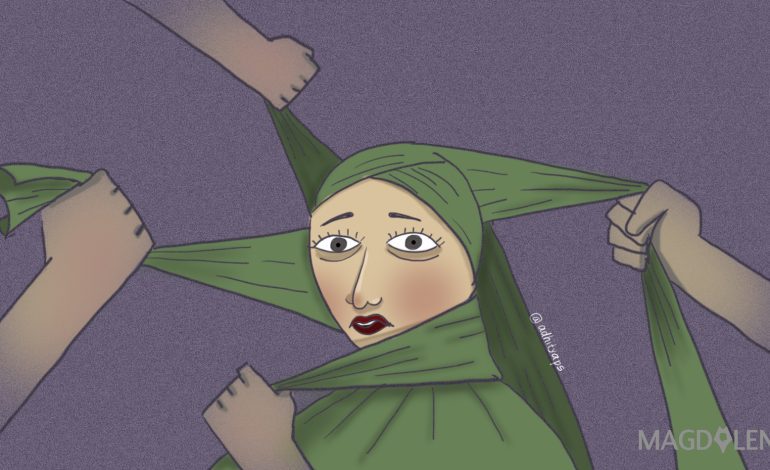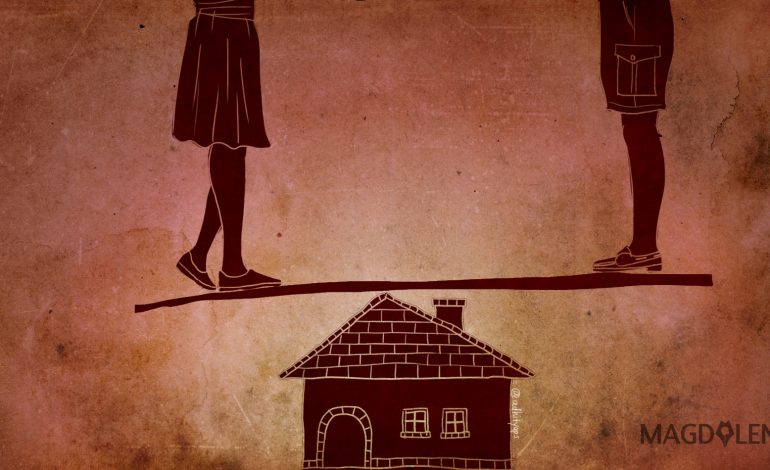‘Posesif’ Romanticizes Dating Violence

“Maybe he’ll change.”
This thought will be a familiar one to girls and women who have experienced abusive relationships. The idea that if you are patient enough, supportive enough, nice enough: maybe he will stop.
Survivors of abusive relationships know that change rarely happens. They know that he will not stop controlling you. In fact, abusive behavior tends to worsen over time, as many women will attest – the kind, gentle man they started dating turns into something else.
That’s why the key messages of Palari Film’s new feature, Posesif (director Edwin, screenplay by Ginatri S. Noer), are problematic. The film implies that abusive relationships are normal: that your boyfriend’s intense jealousy of your friends is normal, that him always wanting to always know where you are and who you’re with is normal, that being strangled for making your own decisions is normal.
This is the unhealthy relationship the film’s protagonists, Lala and Yudhis, fall into over the course of Posesif. Their relationship starts off sweet, like most young romances do, but over time, becomes what psychologists would rightly describe as “toxic”. There is a noticeable power imbalance between the two teenagers – Yudhis tries to control Lala’s life, from who she hangs out with to which university she applies to study at, and even physically hurts her when she pushes back.
Even small acts that Lala sees as romantic are actually possessive or controlling. Early in their relationship, for example, Yudhis makes a copy of Lala’s house key without asking. He surprises her with the duplicate key one evening. Lala is delighted. This should have set off alarm bells for both Lala and her family, as it means he can come and go as he pleases. It is a violation of privacy.
It is important to reaffirm that abuse does not only manifest itself physically, such as through hitting. Abuse can also be emotional, psychological, and even financial. Men are abusive if they do any one of these. Unfortunately, multiple forms of abuse often occur within one relationship, as Lala finds out.
Also troubling is the film’s suggestion that men become abusive because of their parents. While this may be the case for some, men must be responsible for their own actions. Blaming Yudhis’ mother for the way he is lets him get away with his abusive behavior towards Lala. It also permits Lala to think that she can change him if only she is given enough time.
No doubt, Posesif aims to start a conversation on dating violence. However, by romanticizing abusive behavior, it has ultimately failed. The film is packaged as a romantic comedy, and leaves viewers thinking that Yudhis and Lala’s relationship is normal, when this is actually far from the truth.
At the premiere screening I attended in late October, many viewers laughed at scenes in which Yudhis is abusive towards Lala, including when he tries to strangle her. Scenes that should have made people gasp in horror had people chuckling instead. This indicates a serious lack of understanding among Indonesian audiences – and filmmakers – about the seriousness of dating violence.

Violence within a relationship is not acceptable in any form. If Lala was my friend, I’d be telling her to run. Fast.
Kate Walton is a queer feminist activist, writer, and photographer. She works in maternal health and is passionate about women’s rights. Outside of work, she loves cooking Indian food, drinking tea, and trying to read more books than she did last year.






















